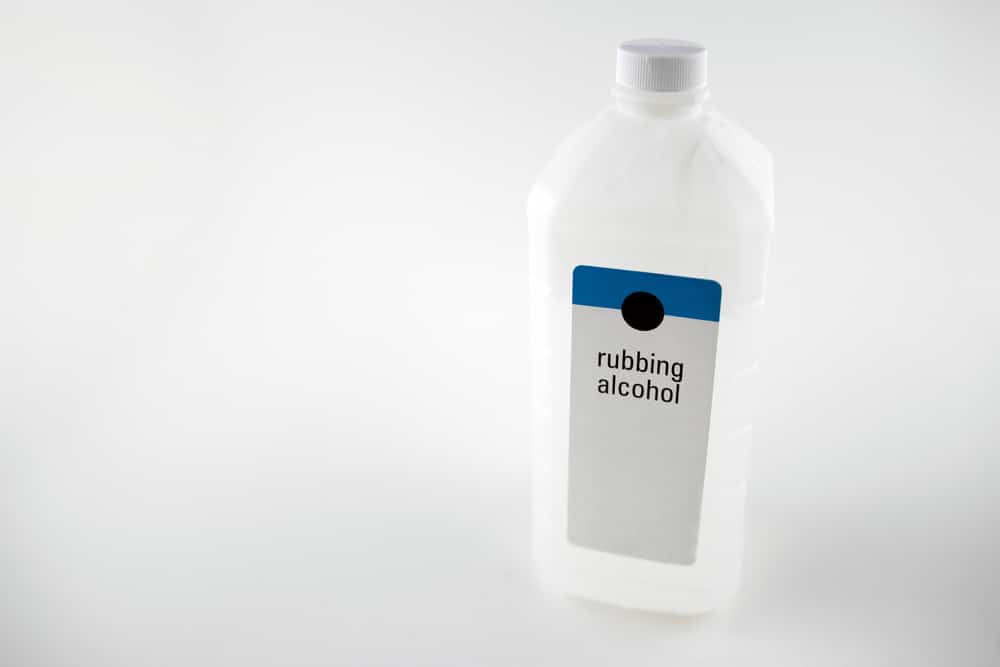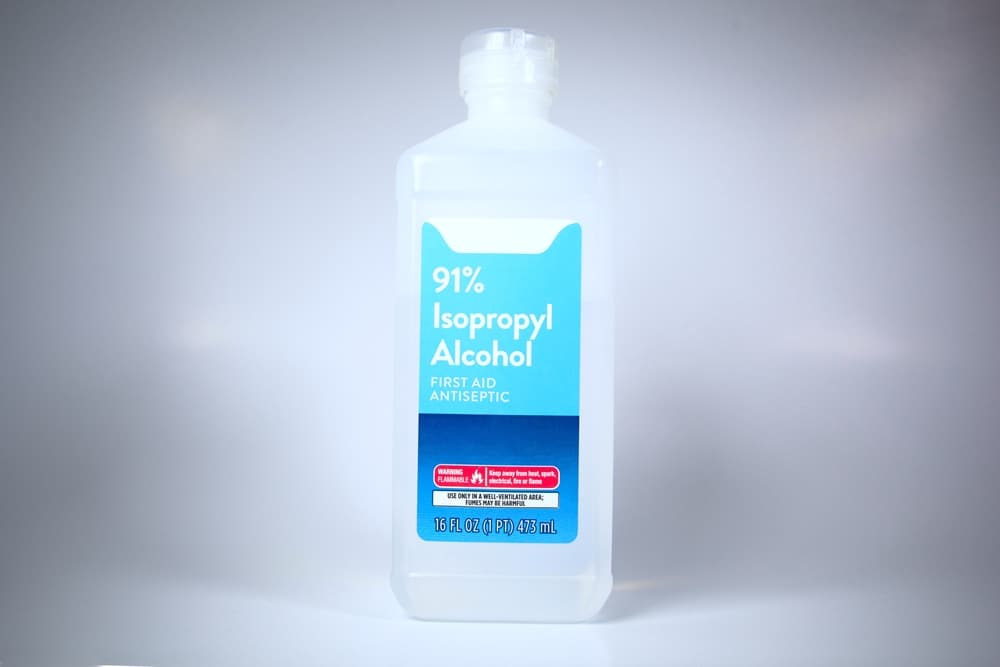Accidents happen. And this time you accidentally spilled isopropyl alcohol on your dog. By the time you react, it’s too late. So, do you panic? No, instead, this is what to do if you spill isopropyl alcohol on your dog.
Isopropyl alcohol is very toxic for dogs. If you get some on your dog or if they ingest it, contact your vet or take them to an emergency vet immediately. Take the bottle with you, which will help whoever is treating your dog to properly take care of them.
Table of Contents
What Is Isopropyl Alcohol And How Does A Dog Metabolize It?

Isopropyl or isopropanol is most commonly known as rubbing alcohol, which is around 70% concentrated. When it gets into your dog’s system, the gastrointestinal tract quickly absorbs it. It can reach peak plasma levels at around 30 minutes.
After ingestion, the liver will metabolize the alcohol, where it converts it to metabolites such as acetone as well as others.
The elimination of the alcohol usually happens via the renal system, where some of it is excreted unchanged, and the rest as acetone and the other metabolites. In dogs, however, alcohol can be excreted through the respiratory system as well. The time needed for the isopropyl alcohol to leave the system is between 3 and 8 hours, and acetone is usually eliminated in the next 24 hours.
How Can A Dog Come Into Contact With Isopropyl Alcohol?
People commonly use isopropyl alcohol or rubbing alcohol for skin disinfection. It’s also in wipes, which people use for surface cleaning, hand sanitizers, mouthwash, and sometimes in ear drops.
We know dogs are curious creatures, and they need to check everything that seems interesting to them. So, sometimes they may see the wipes, which look interesting and ready to be destroyed in a million tiny pieces, and they go for it. Other times, your dog is glued next to you while you are cleaning and you manage to spill a bottle on them. These things happen, which is why it’s important to always be aware of where your dog is.
Symptoms Of Isopropyl Poisoning
So, your naughty boy or girl tasted the wipes or the alcohol got on them somehow. What you could see that may point to isopropyl poisoning are the following common clinical signs:
- Excessive drooling
- Disorientation
- Loss of body control
- Vomiting
- Weakness
- Difficulty breathing
In more severe cases, you may see neurological signs. This is because isopropyl affects the central nervous system. If you notice seizures, blindness, tremors, respiratory distress, or coma, you need to take your dog to the vet as soon as possible. Even though death is uncommon, it may occur in dogs that show signs of labored breathing and cardiovascular depression.
Treatment And Prognosis
First and foremost: DO NOT PANIC. Next, contact your vet. We strongly recommend you do not try and give anything to your dog before consulting a professional.
Take your dog to an emergency room, and take the thing your dog ate or got on them with you to show it to the vet. Many times this is very helpful as the vet gets a good idea about what they are dealing with.
Your dog will most likely have to throw up, and it will need fluids and drugs to treat the symptoms. In most cases, you should be able to take your pooch home the same day. However, if your dog does show more serious signs, then hospitalizing it for overnight monitoring might be a step your vet takes.
Conclusion: What To Do If You Spill Isopropyl Alcohol On Your Dog
Even though this may be a scary situation, it should also be a good reminder that accidents can happen. No matter how much we trust them, they may still get themselves into trouble too.
Ingesting isopropyl or getting it into their system is toxic, but if you react quickly, it will be over with a very good outcome. Our best advice would be to never leave things your dog can reach on the table or the counter. Try to encourage your puppy to play with appropriate toys. I personally would rather invest in toys than vet visits!
So, what are you planning to do to help your dog avoid this issue? Let us know your thoughts and why in the comments below!
